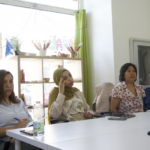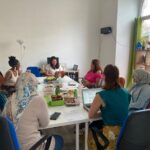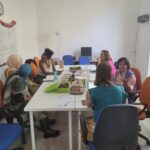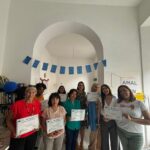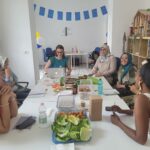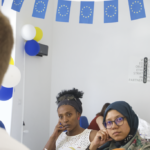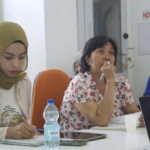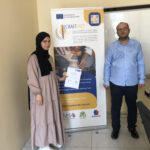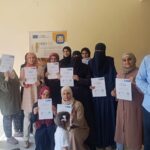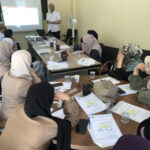financial education workshops
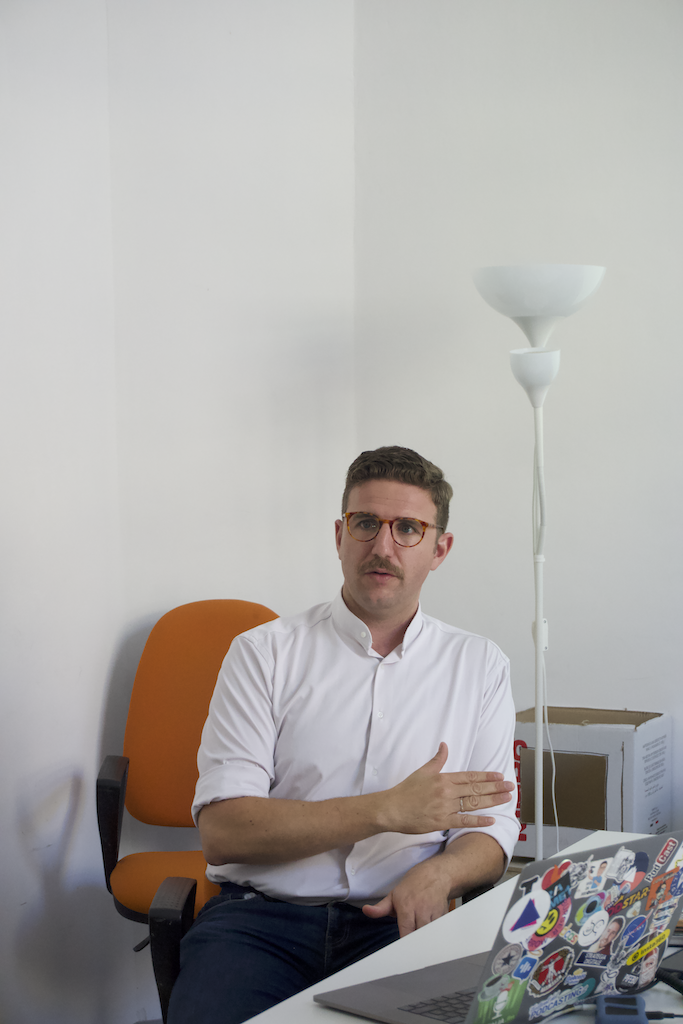
Activities
The target of this activity was 90 participants from our target areas—30 in Italy and 60 in Turkey—to join the financial education workshops aimed at participants in the craft workshops but also open to new participants. The workshops were held in blended mode both in person and online to ensure a higher reach.
We finally reached 133 beneficiaries surpassing the target of 90: 19 in Italy and 114 in Turkey. A total of 60 hours in three workshops were provided (20 hours per workshop).
All participants were give the CRAFT ACT Toolkits on Entrepreneurship and Financial Education at the end of the activities.


Our programmes
We developed two programmes on Entrepreneurship and Craftmanship, developed considering the contexts in Italy and Turkey. Below you can download the programmes in their English version.


Overview
Entrepreneurship Training
The Entrepreneurship Training aimed to equip beneficiaries from vocational workshops in pottery and embroidery with advanced skills to start their own small handicraft businesses and potentially secure a sustainable income. The overarching goal of the Craft-Act project is to empower migrants and facilitate their economic and social integration in host countries. To this end, the financial education workshop provided participants with essential financial and entrepreneurial knowledge to successfully establish and run small craft businesses. These training sessions also offered valuable opportunities for socializing and networking with professionals in the field.
Impact and outcomes
The Entrepreneurship Training provided participants with a comprehensive understanding of the essential aspects of starting and managing a small business. Many concepts that were previously unclear to them, such as cashflow management, VAT procedures, and marketing strategies, were thoroughly explained and discussed. This newfound knowledge has empowered participants with enhanced skills in various critical areas. Participants are now able to understand how to successfully manage their potential business finances effectively.
Moreover, the training equipped them with strategies to market their products effectively, manage customer relationships, and implement sales techniques. They learned about pricing strategies, electronic payments, and selling through online platforms, which can significantly increase their market reach and customer base.
Overall, the workshop sessions were interactive, encouraging participants to share their personal experiences and learn from each other. This peer-to-peer learning fostered a collaborative environment where participants could network and build relationships that could support their business endeavours in the future.
Community Relevance
Given high unemployment rate, this Financial Education workshop is particularly relevant and timely. By providing migrants and other disadvantaged groups with the skills and knowledge needed to start their own businesses, the training helps to address several critical issues, such as economic integration, job creation, cultural integration and social empowerment.
Indeed, small businesses are a significant source of job creation: as participants start their own businesses, they may eventually need to hire additional staff, thereby creating new job opportunities within the community.
Thus, this workshop not only has equipped participants with practical business skills but it may also contribute the broader community development goals. By fostering entrepreneurship, the training may help to create a more inclusive and dynamic economy, providing opportunities for personal and communal growth.
Our participants
We had participants from all over the world also for these workshops. In Italy participants were from Bosnia and Herzegovina, Algeria, Comila, Moldova, Bangladesh, Italy, Ukraine, Peru, Argentina, India, Somalia, Palestine, Venezuela, China, Syria, Paraguay. In Turkey all participants were Syrian refugees.
In Italy we had 19 participants. Countries of origin included Peru, Turkey, China, Poland, Italy, Bolivia, Bangladesh, Tunisia, Venezuela, Ethiopia, the Philippines, and Algeria. The participants’ ages ranged from 28 to 59 years old, representing a broad spectrum of adult learners. The participant group is diverse, with a mix of male and female attendees, although a higher proportion of women were recorded, reflecting the target group’s needs and aims of the project in supporting women’s financial empowerment.
The participant data (114) from Turkey reflects a diverse group primarily comprising Syrian refugees, with some Syrians having also Turkish citizenship. The age range spans from young adults in their early twenties to older participants in their fifties, highlighting a wide age diversity within the group. Gender representation includes both male and female participants, although the majority appear to be women.
Motivation of participants
Participants showed a strong interest in gaining financial knowledge to enhance their personal and professional lives. Many, especially those with an entrepreneurial spirit, aimed to learn how to manage finances effectively for their current or future businesses. Some participants, particularly from countries facing economic challenges, were motivated by a desire for financial stability and independence in Italy. Others expressed a specific interest in improving their understanding of digital and financial tools, such as managing taxes, opening a business, or investing in real estate. Many viewed the course as an opportunity to build a sustainable future, either by selling their craft or establishing a small business, thus increasing their financial security and integration in the Italian market.
Experience and skills of participants
Participants came with diverse backgrounds and varying levels of experience. Some had prior exposure to finance-related areas, such as managing e-commerce platforms or handling social media for small businesses. Others had practical experience through personal initiatives like real estate investments or running small retail services. A few had minimal experience in finance but were driven by a strong will to learn, bringing with them skills from other fields like digital marketing, customer service, and volunteer work.
ABOUT US
The Craft-Act Project: Crafting Resilience, Future, and Talent through Actions promoting Traditional Culture, is an Erasmus+ KA2 project co-funded by the European Union and coordinated by AMAL for Education APS (Italy), in partnership with AIYD Amal İnsani Yardim Derneği (Turkey) and ItaliaHello (Italy).
2022-1-IT02-KA210-ADU-000083847
“Funded by the European Union. Views and opinions expressed are however those of the author(s) only and do not necessarily reflect those of the European Union or the European Education and Culture Executive Agency (EACEA). Neither the European Union nor EACEA can be held responsible for them”
Subscribe
Sign up, you’ll love hearing from us. We promise!

